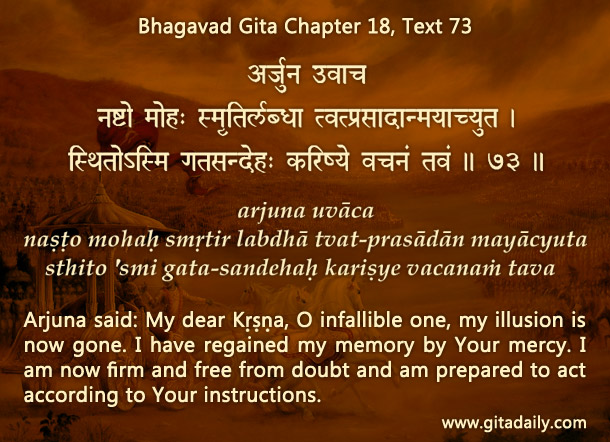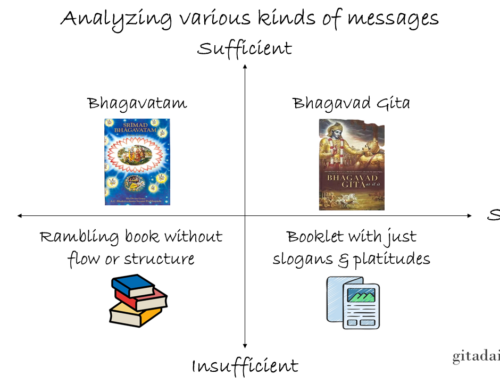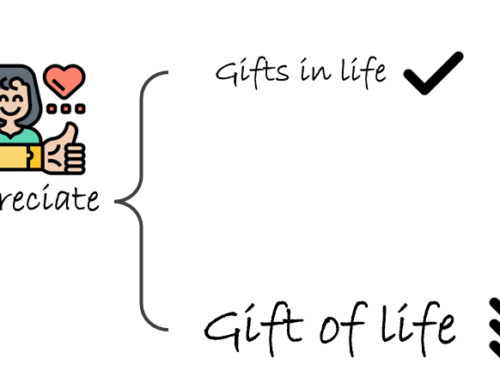On learning the Bhagavad-gita’s conclusion to comply with the divine will (18.73), an apprehension may arise: “If I start doing God’s will, does that mean I will lose my independence?”
Not exactly.
The Gita’s call to harmonize with the divine will is centered on love. And love brings a constraint on independence — love frequently means that doing the will of the object of our love gives us far greater fulfillment than pleasing ourselves by doing our will. A single person who seeks a loving relationship with a potential life partner agrees both in principle and in practice to focus on that person. While that focus may decrease independence, it also increases affection.
The same applies to the human-divine relationship: when we put aside our stray desires and nurture our divine desire to connect with our Lord, that makes our bond with him extraordinarily close and sweet. Without love, the constraints brought about by any relationship can seem restrictive; with love, those very constraints are seen to be supportive: supportive in finding a fulfillment far greater than that found in lonely liberty.
In various human-human relationships, there is, however, a danger: if the person we are connecting with is not of a good character, then doing their will may not be for our good or even for their good. Fortunately, the human-divine relationship is free from that danger. Krishna is both omniscient and omnibenevolent — he knows what is best for everyone and he wants what is best for everyone. When we strive to do his will, that not only brings out our best but also makes us our best — and helps us find existence’s best fulfillment.
One-sentence summary:
Doing God’s will doesn’t mean losing our independence, it means using our independence to love God and to within the constraints of that divine love discover the supreme fulfillment.
Think it over:
- How does love constrain our independence?
- How does love affect our vision of such constraints?
- How is doing God’s will different from doing the will of anyone else whom we may love?
***
18.73: Arjuna said: My dear Krishna, O infallible one, my illusion is now gone. I have regained my memory by Your mercy. I am now firm and free from doubt and am prepared to act according to Your instructions.
To know more about this verse, please click on the image





GITA inculcates WISDOM